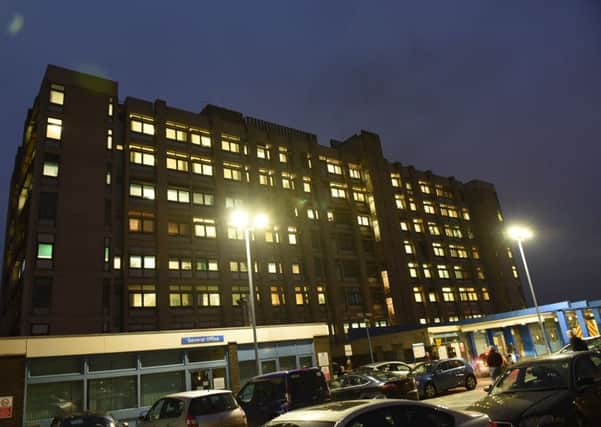Column: DRI achieving teaching hospital status


A few days ago I went to Doncaster Royal Infirmary (DRI) to see Doncaster and Bassetlaw Hospitals NHS Foundation Trust unveiled as the new Doncaster and Bassetlaw Teaching Hospitals NHS Foundation Trust.
Staff at the Trust, which incorporates DRI, Bassetlaw, Montagu and Retford hospitals, have been working hard for many years to reach this high level of excellence, which will see them playing a key role in training the doctors, nurses and other healthcare workers of the future.
Advertisement
Hide AdAdvertisement
Hide AdAchieving ‘teaching’ hospitals status will enable the Trust to expand its vital education and training role and take part in much more health-related research, which in turn will enhance its academic reputation further afield.
This is important, as studies have found that hospitals which are involved in healthcare research achieve better results for the patients they look after, which is another big benefit for the borough.
Having teaching hospitals on our doorstep is also a big boost for Doncaster’s growing economy, as it will support the town’s ambition to create more opportunities for local people to train locally and, crucially, develop their careers locally.
Hopefully it will enable the recruitment and retention of high-quality staff across the nursing and medical professions and many other important functions.
Advertisement
Hide AdAdvertisement
Hide AdI hope it will go a long way towards ending the local ‘brain drain’ which, over the years, has resulted in many young Doncaster people choosing to leave the area in search of suitable healthcare training opportunities.
This is good news for Doncaster as, by next year, the Trust is projecting to provide hands-on training for around 25 per cent of the student doctors from the University of Sheffield, which is our closest medical school.
Together with nearby Sheffield Hallam University, it’s already training nearly one-third of all non-medical healthcare students.
Why is it so important? We have a shortage of key healthcare workers, like consultants, doctors, nurses and other allied professionals in Doncaster.
Advertisement
Hide AdAdvertisement
Hide AdResearch suggests that when these people qualify, they often look for employment where they have trained.
We expect this to be good news for Doncaster as GP registrars, who are training as family doctors, spend 18 months in surgeries and 18 months in hospital as part of their studies.
At my surgery in Bentley, we train future GPs and nurses as well as host student midwives and physiotherapists to gain experience.